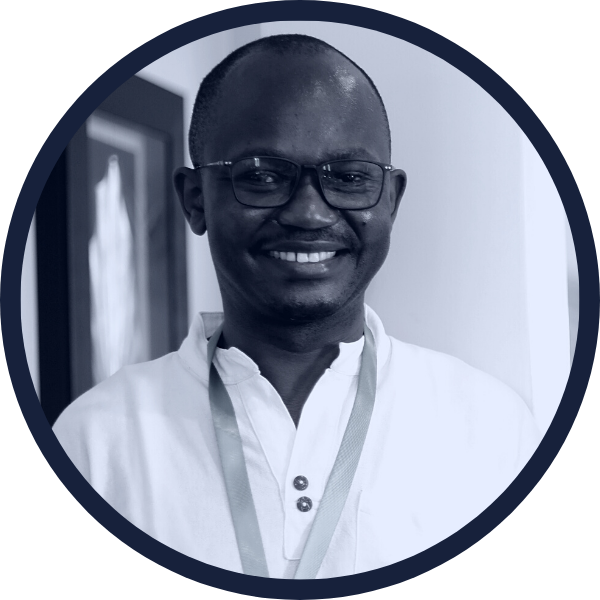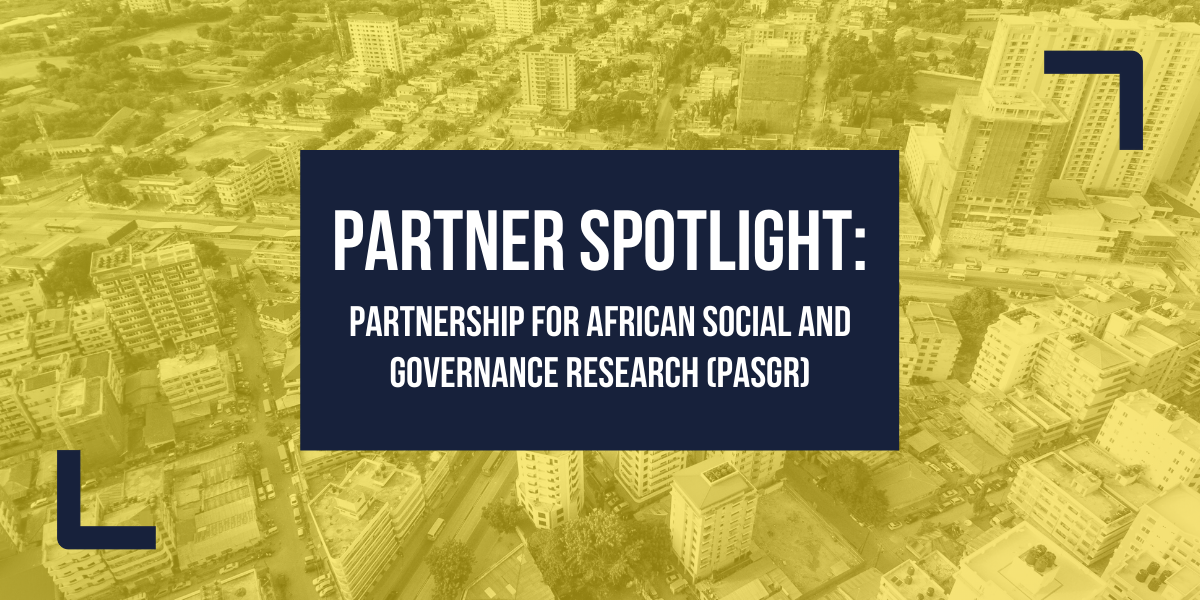The Partnership for African Social and Governance Research (PASGR) is an independent, non-profit organisation based in Nairobi, working with partners across Africa and internationally to produce quality research that addresses public policy and development issues. PASGR is made up of three core programmes: research and policy, higher education, and professional development and training.
Martin Atela is an academic and research and policy programme manager at PASGR, with a multi-disciplinary research background spanning public policy and governance, development policy and public health systems research. He is also uptake director for the African Cities Research Consortium.

Can you tell us about PASGR’s previous work in African cities, and the expertise PASGR brings to the consortium?
PASGR has been researching urban governance and city transformation in Africa since 2015, through a project that looks at how the development of new and growing urban centres in Africa could be shaped, and issues of governance reformed. This research was informed by the reality that many development projects in these areas still rely on the colonial thinking and planning that originated these urban centres.
Together with partners – including the African Centre for Cities at the University of Cape Town – we thought that it was time for a new, African-led, African-defined urban agenda for these centres. Through this project we have looked at issues of urbanisation and city transformation in several African cities – an approach that is very much relevant to what we’re doing in ACRC. Also relevant is a second research project in the cities of Lagos, Addis Ababa and Nairobi, in which we’re using a political economy and political settlement approach to better understand employment creation.
PASGR uses a unique evidence-to-policy approach we call Utafiti Sera, which is Kiswahili for research-policy. Through this approach, we create communities of practice around specific policy issues, working with them directly to provide evidence so that different stakeholders can access, appraise and use the evidence generated for policy purposes. The Utafiti Sera approach is something we’re bringing to ACRC, to help drive the uptake and impact of our research.
“We will be working in 13 cities, each of which is unique, so it is wrong to think one approach will fit all of them – that won’t be the case.”
What do you think is the most crucial challenge for development uptake in African cities?
There are numerous challenges for uptake. We will be working in 13 cities, each of which is unique, so it is wrong to think one approach will fit all of them – that won’t be the case. Until we get together with research teams in those individual cities, it will be very difficult to prescribe the kind of approach to use. Having a ‘wait and see’ approach to uptake is key.
The other challenging aspect of uptake is the contexts in which we are working. Some contexts can be described as fragile or conflict-affected, but each situation is different. Understanding the political economy and political settlements in these contexts becomes so important in designing an uptake plan and strategy. Who are the key actors? Are they interested in what we want to do? What is their span of attention, and how often does political leadership change? How do you craft a plan that takes into consideration all of these variables?
The final thing is communication. I want to link this to the huge and ongoing conversation about decolonising knowledge and knowledge processes, and how we run projects in Africa. FCDO has its key priorities that ACRC needs to address, but we are going into contexts that have previously experienced serious external relations challenges, within cities that are still very much built on colonial thinking and ways of doing things.
So, how do we build awareness of these issues through our work? How do we move into these cities and create trust and mutually-respectful relationships that genuinely help us to achieve our goals? You have, on one hand, very conceptual, high-level theoretical thinking led by international institutions, mostly from the Europe. On the other hand, you have African teams of researchers who are the ones ‘getting their hands dirty’. How do you bring those two groups together to understand each other, so that the evidence coming out of this process can genuinely meet the evidence needs of FCDO, as well as our key stakeholders? I see that as a major challenge.
“We cherish partnerships – not only with the global North but within the African continent – and believe a collaborative approach to tackling urban issues facing the continent is better than a siloed one.”
What is most exciting for you about this project?
ACRC speaks to our current research priorities and as we’ve already done smaller-scale research on this issue, it was naturally attractive. Also, PASGR’s evidence-to-policy approach is still very new. It’s something we have developed in the last four years, so we saw the consortium as an opportunity to expand this from a very African-driven, African-led perspective.
The opportunity to lead the uptake process for ACRC couldn’t have come at a better time for me personally and for PASGR. We cherish partnerships – not only with the global North but within the African continent – and believe a collaborative approach to tackling urban issues facing the continent is better than a siloed one. ACRC brings together a cohort of academically excellent organisations, policy and practice organisations, and community-focused organisations – a very robust combination that will ensure we can deliver this work.
Read more from PASGR:
- What makes a good partnership? Transparency, trust – and a bit of patience!
- Social protection and inclusivity is key in social-economic policy
- Recommendations for achieving a virtual future – together
- Gendered research methods could counter hegemony
- Three lessons on research dissemination in fragile settings: healing, learning and more
Follow PASGR’s work:
Note: This article presents the views of the author featured and does not necessarily represent the views of the African Cities Research Consortium as a whole.
The African Cities blog is licensed under Creative Commons Attribution-NonCommercial-NoDerivatives 4.0 International (CC BY-NC-ND 4.0), which means you are welcome to repost this content as long as you provide full credit and a link to this original post.


